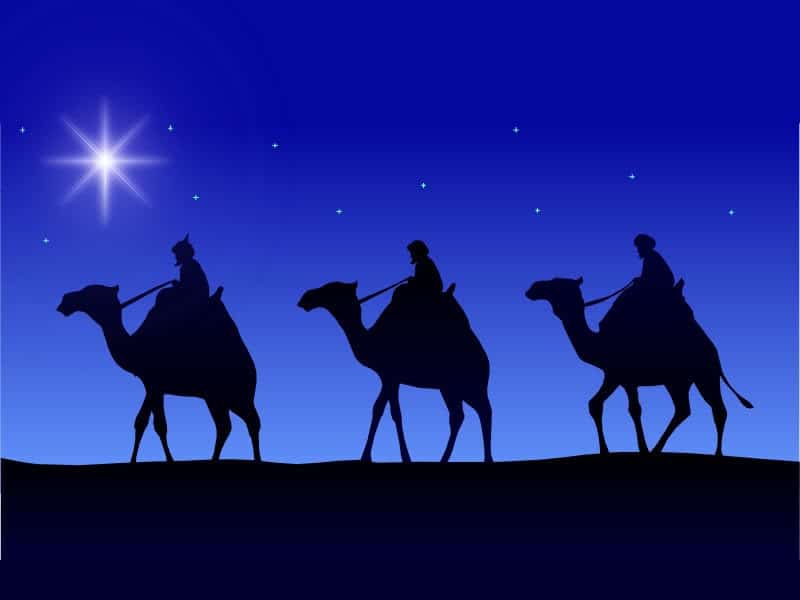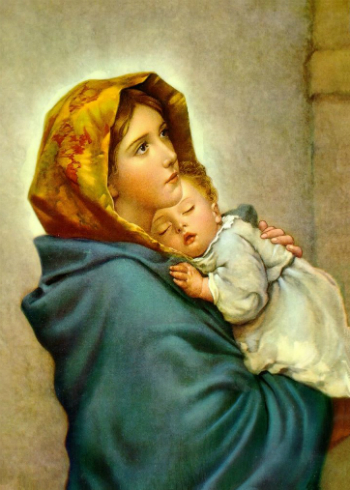An incandescent light bulb contains a filament that glows brightly but sits within a glass bulb in order to produce light. That light is meant to go beyond the confines of just the bulb. In celebrating the Epiphany of the Lord today we celebrate the first moment in Our Lord’s childhood when it was revealed, as Paul recalls in today’s Second Reading, that all nations, not just Israel, would be able to benefit from the promises Our Lord has made through the Gospel. The Three Kings come from afar bearing gifts because they see the signs in the stars that a great king had just been born, great enough to warrant leaving their countries behind to see him and pay him homage.
The First Reading speaks of how Jerusalem will be radiant when the Lord shines upon it, so much so that Jerusalem itself will attract others by its light to the Lord. Christ is the filament without which there’d be no light at all. Israel is the glass bulb; in becoming flesh Our Lord choice a place, a time, and a people in which to become flesh, and that people, prepared by the Father, is Israel. Like a light bulb, that illumination is not just for Israel alone; all peoples will be drawn to that light until they reflect it too. The Three Kings represent all the peoples of the earth seeing that light in the distance of their cultural differences and heading toward it. A distant light, a star, became a beacon that led them to Jerusalem. The prophecy regarding Bethlehem lead them closer to their goal, and then the star itself ushered them to the baby Jesus.
Thanks to this episode we know that Christ’s light reaches to all the nations, and leads us even above and beyond our cultures. All the nations of the earth can benefit from his light. Let’s pray today for the grace to follow his star in our lives as well, and offer him the best gifts we have in homage so that his light shines in us too.
Readings: Isaiah 60:1–6; Psalm 72:1–2, 7–8, 10–11, 12–13; Ephesians 3:2–3a, 5–6; Matthew 2:1–12.


